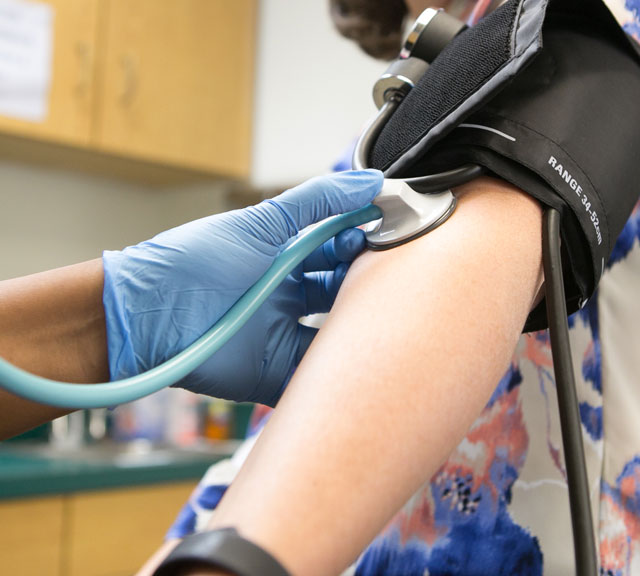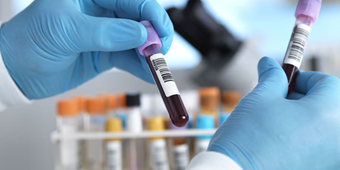Birth Control Pills: The Vascular Health Tradeoff

Find Your Perfect Match
Answer a few questions and we'll provide you with a list of primary care providers that best fit your needs.
They seem harmless enough. Quite possibly, most of the adult females in your life have taken them at one time or another. Birth control pills, or oral contraceptives known as “the pill,” have been around since the 1960s. Like most seemingly good things, however, there’s a downside.
Studies have shown high-dose birth control pills to increase your risk for heart attack and stroke. While most pills today use lower hormone doses, the risks of using even low-dose pills are not fully known.
Experts advise caution when considering if birth control pills are right for you, especially if you have other health conditions that increase your risk for heart attack and stroke.
The Pill, Blood Clots, And Smoking
The pill can cause blood clots to form in your blood vessels. When a blood clot blocks a blood vessel that supplies blood to the brain, it can cause a stroke.
When a blood clot blocks blood flow through a coronary artery, it can cause a heart attack.
Cigarette smoking boosts your risk of serious health problems from birth control pill use, especially blood clots. If you’re over 35, your risk is even higher.
The good news? You can lesson your blood clot risk as soon as you go off birth control pills.
Experts advise caution when considering if birth control pills are right for you, especially if you have other health conditions that increase your risk for heart attack and stroke.
The Pill Can Worsen Other Risk Factors For Heart Attack, Stroke

Using birth control pills can also put you at greater risk for coronary heart disease (CHD), or coronary artery disease – the most common type of heart disease and the most common cause of heart attack. That’s because the pill can worsen the effects of these CHD risk factors:
- Diabetes. Having diabetes doubles a woman’s risk of developing CHD and is a major risk factor for stroke. Blood sugar (glucose) levels can change dramatically in women who take birth control pills. Over time, a high blood sugar level can lead to increased plaque buildup in your arteries.
- High blood pressure. High blood pressure is the main risk factor for stroke. Your blood pressure may go up after beginning birth control pills. Women who have blood pressure greater than 120/80 mmHg are at increased risk for CHD. Very high blood pressure may cause blood vessels to burst, leading to stroke.
- High blood cholesterol. Too much bad cholesterol can increase your risk for heart disease and stroke. Certain birth control pills may raise cholesterol levels. Having diabetes can also lead to abnormal cholesterol.
With CHD, plaque builds up on the inner walls of your coronary arteries. Over time, plaque can harden or rupture. Hardened plaque narrows your coronary arteries and reduces the flow of oxygen-rich blood to your heart. If the plaque ruptures, a blood clot can form.
The Varicose Vein Connection
Prevention of varicose veins and spider veins may be enough to make you reconsider using birth control pills. While they usually don’t cause health problems, swollen and twisted varicose veins can be unsightly and sometimes uncomfortable.
The estrogen hormone in birth control pills can weaken your vein valves. When these valves weaken and don’t properly close, it can prevent blood from flowing back to your heart. Blood can then leak back into the lower part of your vein. Over time, more blood gets stuck in the vein, building pressure that weakens the vein wall, causing your vein to grow larger.
Birth control pills can change how your body works on many levels. If you’re taking the pill or are considering doing so, follow these guidelines from the National Heart, Lung, and Blood Institute:
- Don’t mix smoking and birth control pills. If you’re unable to quit smoking, choose a different form of birth control.
- Pay attention to your diabetes. If you have a diabetes or have a close relative who does, get regular blood sugar tests.
- Watch your blood pressure. If your blood pressure rises while taking birth control pills, ask your doctor about changing pills or switching to another form of birth control.
- Talk with your doctor. If you have heart disease or another heart problem, or if you’ve suffered a stroke, ask your doctor about birth control options other than the pill.
Find Your Perfect Match
Answer a few questions and we'll provide you with a list of primary care providers that best fit your needs.
Source: U.S. Department of Health and Human Services, National Heart, Lung, and Blood Institute; Womenshealth.gov; U.S. National Library of Medicine, MedlinePlus




